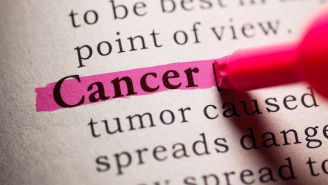Colorectal cancer is the second leading cause of cancer-related deaths in the United States, according to the U.S. National Cancer Institute. Although colorectal cancer death rates are declining overall, deaths among people younger than 50 rose 2 percent every year from 2012 to 2016. The good news? Early detection and regular screenings can help prevent the disease and often cure it.
What is colorectal cancer?
Colorectal cancer is cancer that starts in the inner lining of the colon (the large intestine) or rectum. The cancer usually begins as a polyp, and eventually cancer cells can break free and spread to other parts of the body. It's important to remember that polyps are often benign, but some may lead to cancer.
Who’s at risk?
Both men and women are at risk for colorectal cancer. Men have a 1 in 23 chance of developing the cancer; women, a 1 in 25 chance. Experts aren't sure why, but African American men and women have an even higher risk.
What causes colorectal cancer?
Studies show that certain factors may increase your risk of developing colon cancers, but why and how they affect the disease is still unknown. Being overweight or inactive, eating a diet rich in red or processed meats, smoking and heavy drinking can all increase your risk. Those over 50 or those with inflammatory bowel disease have an increased risk, too.
Most instances of colorectal cancer are found in people who do not have a history of colorectal cancer. But up to 20 percent of people with colon cancer have a family history of it.
“Patients who had family members with colon cancer, rectal cancer or polyps are most at risk," says Theodoros Voloyiannis, MD, a colon and rectal surgeon at Clear Lake Regional Medical Center in Houston, Texas.
Are there any symptoms?
Colon cancer is sometimes called a "silent killer" because it often has no symptoms until the disease has progressed. “The symptoms can sometimes be confused with other conditions, and in general, many patients have no symptoms or warning signs until the cancer has advanced,” says Dr. Voloyiannis. Here are some symptoms that may indicate cancer:
- Prolonged bowel problems like diarrhea and constipation
- Feeling like you still have to go after a bowel movement
- Rectal bleeding
- Blood in the stool
- Decreased stool quality
- Unintended weight loss
- Weakness and fatigue
- Abdominal discomfort, pain or cramping
- Anemia
What are the screening options?
Screening can help doctors find the polyps and remove them early on or diagnose and suggest treatment. Both the U.S. Preventive Services Task Force (USPSTF) and the ACS recommend screenings for people with average risk beginning at age 45. Earlier screenings may be recommended for those who have an increased risk of colorectal cancers, Voloyiannis adds.
Here are some of the most common types of screenings:
- Colonoscopy: “This is the preferred method of screening,” notes Voloyiannis. During the procedure, a flexible tube is inserted into the colon and rectum to check for anything out of the ordinary. If polyps are found, they are normally removed for testing. Should be done every 10 years, or earlier depending on the findings.
- Stool tests: These tests look for blood or cancer cells in stool. You collect a sample at home and mail it in for analysis. Should be done every 1 to 3 years, depending on the test.
- Flexible sigmoidoscopy: A flexible tube is inserted to check the rectum and lower part of the colon. Should be done every 5 years.
Unfortunately, many people put off getting their colonoscopies for fear that the process will be uncomfortable and time-consuming. In reality, once you’ve finished prepping, the actual procedure is short and usually painless.
“Nowadays, the bowel preparation and fluid you drink to clean up the bowels prior to the colonoscopy is more tolerable than it used to be. You don’t have to drink as much fluid and you can drink water in between,” explains Voloyiannis. Most colonoscopies today are also being done under IV anesthesia. “You’re completely asleep so you don’t feel the pain or cramps, then you wake up right after the procedure, and only have to take one day off of work.”
Common treatment options
The cancer’s stage, location and type will all dictate which treatment option is right for you. Options include:
- Surgery
- Radiation therapy
- Chemotherapy
- Targeted therapy
- Immunotherapy
- Combination therapy
Ways to lower your risk
While you can’t control your genes, you can take care of your body. Aside from having the recommended screenings, here are steps you can take to lower your risk of colon cancer:
- Maintain a healthy weight.
- Quit smoking.
- Stay active and exercise regularly.
- Avoid overeating red meat and processed foods and eat plenty of fruits and vegetables
- Limit alcoholic beverages to no more than 1 to 2 drinks a day.
If detected early, polyps can be removed so they don’t turn into cancer. Sticking to your own personal screening recommendations is the easiest way to prevent colorectal cancer. And taking care of your health can lower your risk, too.







